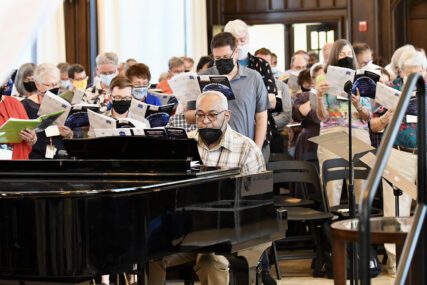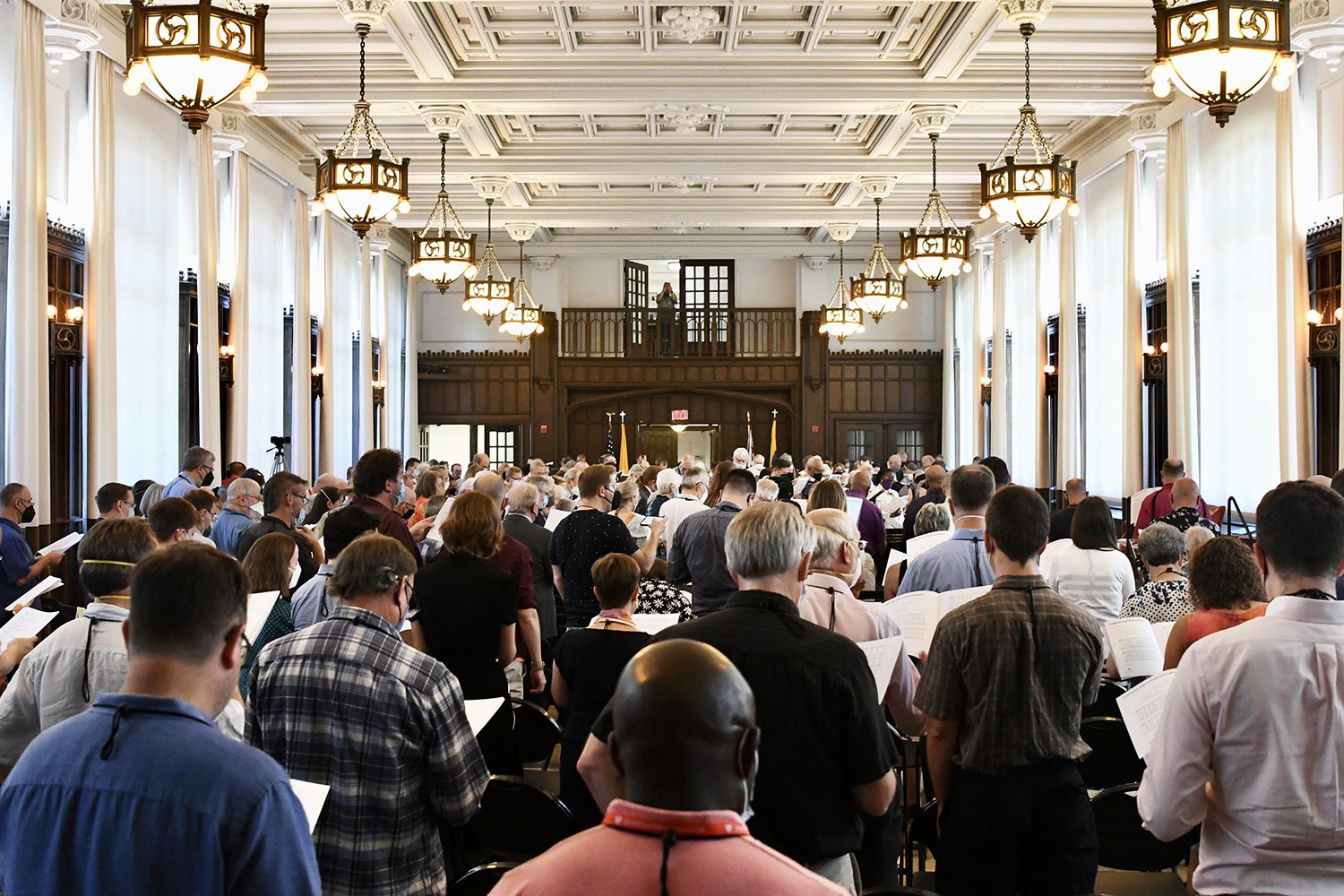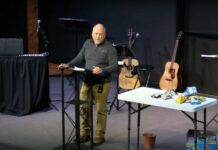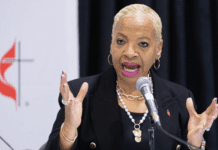“Let’s rejoice all together,” the song began. “Wonderful, wonderful God’s creation.”
In a prerecorded video from Australia, Tanya Riches talked about the musical evolution of Hillsong, whose music ministry has provided a thick songbook for evangelical Christian churches around the globe.
Songs performed in coordination with live piano music were included in the Hymn Society’s Centennial Celebration Hymn Festival on Tuesday, July 19, 2022, in Washington, D.C. Photo courtesy of The Hymn Society/Glen Richardson
Riches, a senior lecturer at Hillsong’s college in Sydney, noted that Hillsong was once known best for Darlene Zschech’s 1993 “Shout to the Lord.” By 2016, however, Hillsong’s co-founder, Brian Houston, who resigned earlier this year, told conference-goers in the U.S. that the song’s time had passed. “This song’s moment is no longer relevant to the congregation’s work in the Spirit,” Riches explained.
The Rev. Mikie Roberts, program executive for spiritual life and for faith and order for the World Council of Churches, described in a later plenary how his home country of Antigua and Barbuda had gained independence in 1981 in part through the use of patriotic hymns that reached people through their churches. To reach the most people, the tunes excluded the familiar syncopation of local Calypso music.
“The patriotic and the national songs had to be simple, yet direct, so that they could be promoted in schools, played on the air and sung every day including Sunday,” said Roberts, a Moravian pastor.
An international panel of speakers grappled with the origins of the hymnody in parts of the world where songs brought by Western missionaries are still revered more than other church music, including the songs of local cultures.
“We’re still in the process of decolonizing what we are singing,” said Gerardo Oberman, a leader of Reformed Churches in Argentina and one of the panelists, speaking through a translator. “We are still trying to find our own voice or trying to find our own rhythms. Because there’s a little bit of a disconnect between what we sing in our homes, what we sing on the streets, and what we sing in our churches.”
C. Michael Hawn, an Iowa native who has long advocated for including global music in American congregations’ worship services, said that, despite concerns about Western music’s dominance, some people across the globe made traditionally Western hymns genuinely their own.
Hymn Society members sing during their annual conference’s Centennial Celebration Hymn Festival on Tuesday, July 19, 2022, in Washington, D.C. Photo courtesy of The Hymn Society/Glen Richardson
“I have developed a little bit more awareness and sympathy for ‘What a Friend We Have in Jesus’ being sung in Yoruba — or not just in the language, but in a style that reflects they’ve Africanized it,” said Hawn, professor emeritus of church music at Southern Methodist University’s Perkins School of Theology.
“And so it’s not a simple transplant; it’s a reconstruction, a certain kind of hybridity.”
Within three years of the Hymn Society’s first meeting in 1922, the Baptist Standard Hymnal and The Book of American Negro Spirituals were published. But by the 1980s and 1990s, Hawn said, there was a greater consciousness of being inclusive, and hymnals began to include more global music. People developed more intentionality about “what sounds take place in a sacred space.”
Accordingly, the conference’s closing festival on Thursday, at National City Christian Church, mixed the church’s organ with the djembe, a West African drum, as well as voices and brass instruments and music by a range of composers.
“And now, as we prepare to go forth, may the spirit of God blow among us to bring forth new songs,” said McMahon as he closed the meeting, “songs of faith, songs of healing, songs of transformation, songs of peace, songs of a world remade.”
This article originally appeared here.













